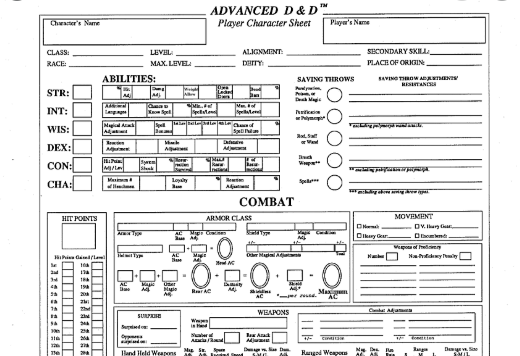
They Don't Understand What a Game is
See the tweet below:
"Game as a Whole" - rules should make sense and be consistently applied or there is no "game", it's just wankery. "Campaign" - your setting/adventures should be consistent with the world YOU create. "Participants" - should abide by the preceding two points.
— Werekoala (@Werekoala2000) April 24, 2020
I would be hard pressed to better state in so few words why Gygax and his contemporaries had an attitude of rules/setting/players, in roughly that order, than what Werekoala wrote. In so few words, he also implies that people who want it any other way are looking for validation, not a game.
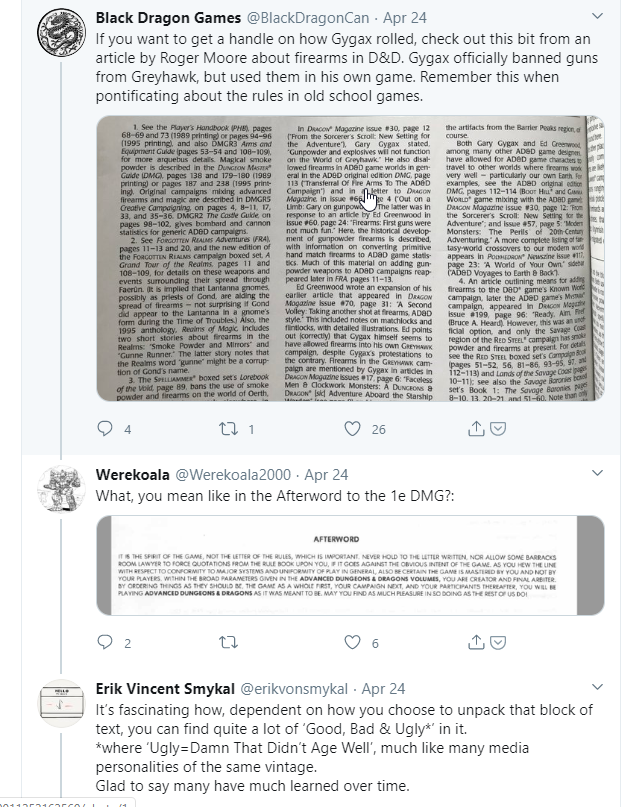
Some things are lost in context here. I'm not sure, but am guessing that the original post had some baggage along the lines of "the rules aren't hard and fast, so don't worry about rules," - or was taken as such. The excerpt he shows is interesting.

The relevant text is at the end: You are creator and final arbiter. By ordering things as they should be, the game as a whole first, your campaign next, and your participants thereafter, you will be playing AD&D as it was meant to be.
Of course some clueless type chimes in, complete with millenial style "damn that didn't age well" about the priorities being antiquated and "out of touch".
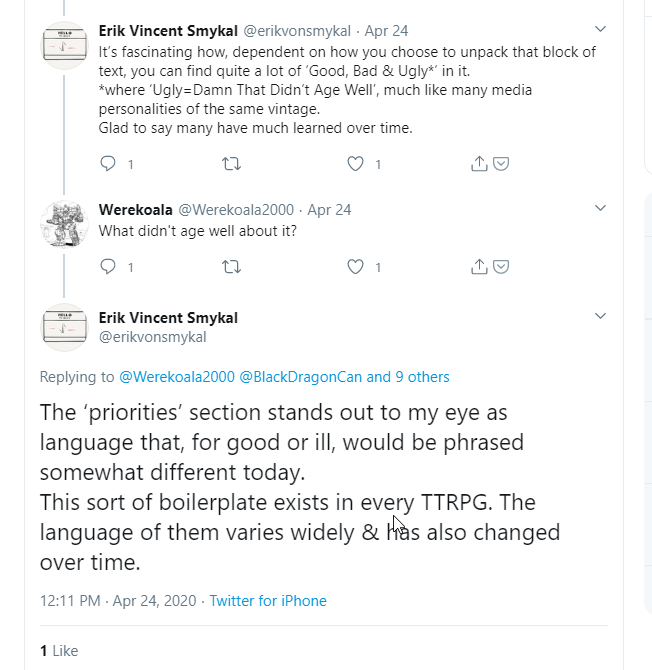
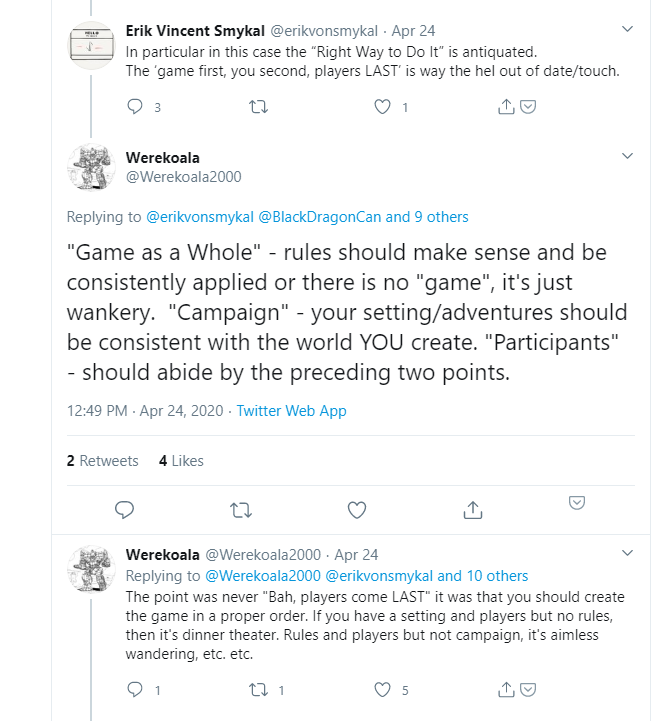
As I said at the beginning - WK's answer is brilliant.
Incidentally, it's game as a whole first, not "rules."
Why?
Because the wargaming tradition that D&D grew out of considered the rules to be a framework - and in designing scenarios, you picked and chose which rules were in effect, or even overridden. Hell - Avalon Hill's "Starship Troopers" explicitly teaches you the game one scenario at a time with more rules added in each one to the extent that the rulebook is organized by scenario, vice strictly movement/combat/etc.
WK also refutes "the players come last", because in reality, without the rules, selected as needed for the campaign or theme of the world the GM is running, are the pieces needed for the players to play the game at all. That excerpt also makes it explicit from its very first sentence that sea lawyers leveraging rules to break the game, and slavish adherence to rules when they break the nature of the campaign world, is bad.
Oh, and EVS is a liar:
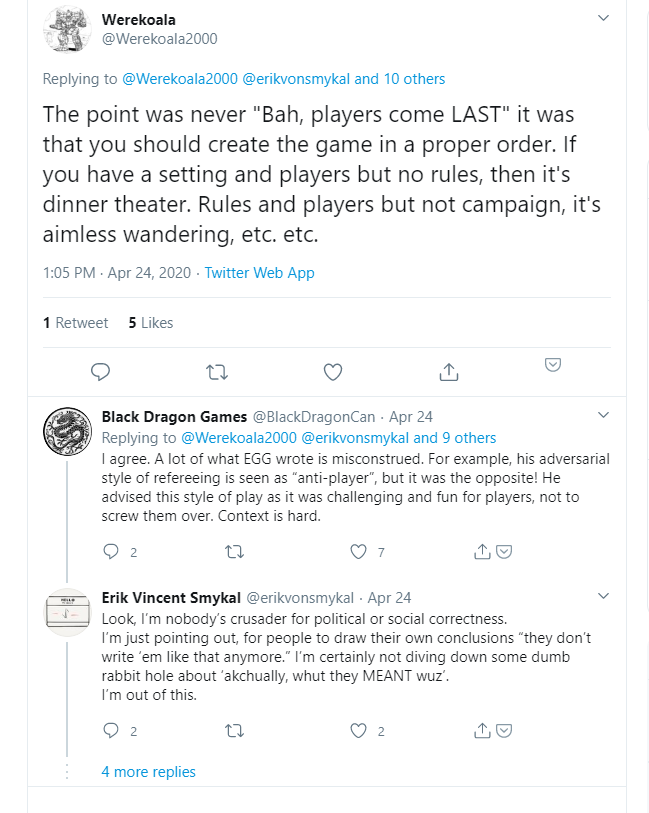
Look, I’m nobody’s crusader for political or social correctness.
I’m just pointing out, for people to draw their own conclusions “they don’t write ‘em like that anymore.” I’m certainly not diving down some dumb rabbit hole about ‘akchually, whut they MEANT wuz’.
I’m out of this.
The first, maybe he doesn't think so.
The second? He wasn't "just" pointing things out for people to make their own judgments. He made a moral judgement and proclamation about how things were done, and absolutely declared what he believed they meant.
